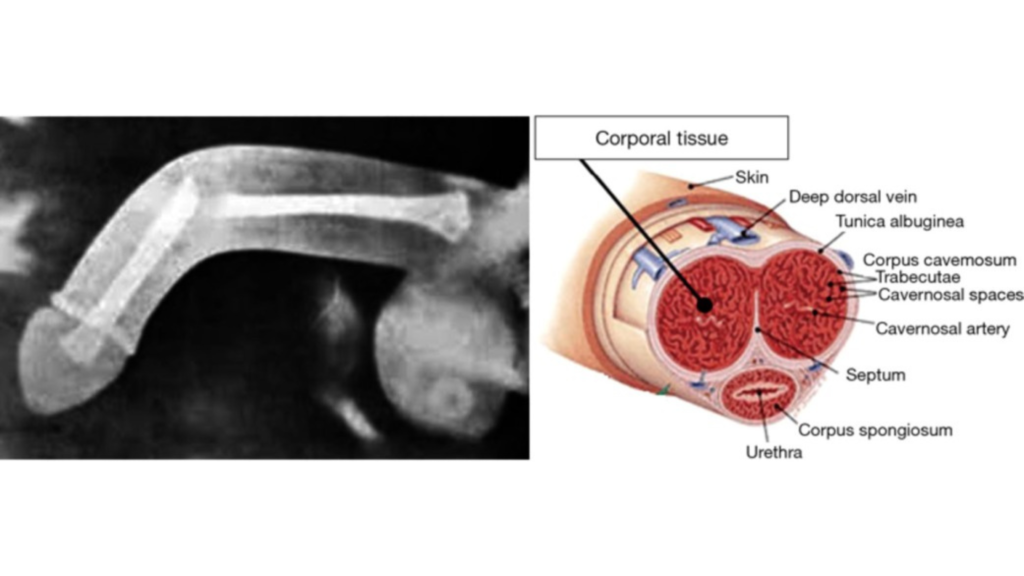
In the realm of medical mishaps, few injuries evoke as much discomfort and apprehension as a penile fracture. Despite its rather alarming name, a penile fracture doesn’t involve any actual bones. Instead, it refers to a tear in the tunica albuginea, the fibrous tissue surrounding the erectile chambers of the penis. This injury typically occurs during moments of intense sexual activity or due to traumatic bending or twisting of the erect penis.
Penile fractures are relatively rare but can have significant consequences if left untreated. Understanding the symptoms, seeking prompt medical attention, and following through with proper treatment and recovery measures are crucial steps in managing this condition effectively. In this comprehensive guide, we will explore the symptoms, treatment options, and recovery process associated with penile fractures, shedding light on this sensitive yet essential aspect of men’s health.
Symptoms
Symptoms of a penile fracture can be distressing and alarming, often prompting immediate medical attention. Understanding these symptoms is crucial for prompt diagnosis and appropriate treatment. Let’s delve into each symptom in detail:
Immediate Severe Pain: The hallmark symptom of a penile fracture is the sudden onset of intense pain. This pain typically occurs during sexual intercourse or masturbation when the penis experiences trauma, such as hitting a partner’s pubic bone or experiencing forceful bending. The pain is often described as sharp, severe, and localized to the site of injury. It can be incapacitating, leading to immediate cessation of sexual activity.
Audible Popping or Cracking Sound: In some cases, individuals may hear a distinct popping or cracking sound at the time of injury. This sound is often described as similar to the snapping of a rubber band or the breaking of a stick. The audible sound occurs concurrent with the tear in the tunica albuginea, indicating a significant injury to the penile tissue. However, not all cases of penile fracture are accompanied by this sound.
Swelling and Bruising: Following a penile fracture, swelling and bruising of the penis are common due to internal bleeding. The trauma to the tunica albuginea and surrounding blood vessels can result in the accumulation of blood within the penile tissues, leading to swelling (oedema) and discolouration (bruising). The affected area may appear swollen, red, or purple, and the bruising may extend along the shaft of the penis. Swelling and bruising are visible signs of tissue damage and inflammation.
Deformity: A penile fracture often causes the penis to appear bent or deformed. The extent of the deformity depends on the location and severity of the tear in the tunica albuginea. In some cases, the deformity may be subtle, while in others, it can be more pronounced. The penis may bend at an unnatural angle, deviating to one side or forming a curvature. This deformity is indicative of the structural integrity of the penile tissue being compromised.
Difficulty in Urination: Due to the trauma and inflammation associated with a penile fracture, some individuals may experience difficulty or pain while urinating. The act of urination may exacerbate discomfort, causing burning or stinging sensations. In severe cases, there may be blood in the urine (hematuria) due to the presence of blood within the penile tissues. Difficulty in urination highlights the functional impairment caused by the injury and may necessitate medical evaluation.
Treatment
Treatment for penile fracture involves a comprehensive approach aimed at repairing the damaged tissue, relieving symptoms, and ensuring optimal recovery. Let’s explore each aspect of treatment in detail:
Immediate Medical Attention: Prompt medical evaluation is crucial if a penile fracture is suspected. Delay in seeking treatment can lead to complications such as erectile dysfunction or penile curvature. Upon arrival at the healthcare facility, the patient will undergo a thorough assessment to confirm the diagnosis and determine the extent of the injury.
Diagnostic Tests: To confirm the diagnosis of penile fracture and assess the severity of the injury, healthcare providers may utilize various diagnostic tests. Physical examinations, including visual inspection and palpation of the penis, are typically performed to evaluate for signs of swelling, bruising, or deformity. Additionally, imaging tests such as ultrasound or magnetic resonance imaging (MRI) may be employed to visualize the internal structures of the penis and identify any tears in the tunica albuginea.
Surgical Repair: In most cases of penile fracture, surgical intervention is necessary to repair the torn tissue and restore normal penile function. The primary goal of surgery is to align and suture the torn edges of the tunica albuginea to facilitate proper healing. This procedure is typically performed under general or regional anaesthesia by a urologist with expertise in penile surgery. During the surgery, the surgeon carefully identifies the site of the tear and meticulously repairs the damaged tissue using fine sutures. Depending on the extent of the injury, additional procedures such as evacuation of hematoma (blood clot) or repair of associated injuries may be performed.
Post-Surgery Care:
Following surgical repair, patients are advised to adhere to post-operative care instructions to promote optimal healing and prevent complications. This may include:
- Rest and immobilization: Patients are instructed to refrain from sexual activity and strenuous physical activities for several weeks to allow the penis to heal properly. Immobilization may be achieved using a splint or supportive dressing.
- Pain management: Pain medications, such as nonsteroidal anti-inflammatory drugs (NSAIDs) or opioids, may be prescribed to manage post-operative pain. Patients are encouraged to take pain medications as directed and report any uncontrolled pain to their healthcare provider.
- Antibiotic therapy: To prevent infection, patients may receive a course of antibiotics following surgery. It is essential to complete the full course of antibiotics as prescribed.
Follow-Up Appointments: Regular follow-up appointments with the healthcare provider are essential to monitor the healing process and address any concerns or complications that may arise. During these appointments, the surgeon will assess the surgical site, evaluate for signs of infection or complications, and provide guidance on wound care and activity restrictions. Patients should attend all scheduled follow-up appointments and communicate any changes in symptoms or concerns to their healthcare provider promptly.
Conclusion
Understanding the symptoms, treatment options, and recovery process associated with penile fracture is paramount for men’s health and well-being. While this condition may be rare, its consequences can be significant if left untreated. Prompt recognition of symptoms, coupled with immediate medical attention, is essential for accurate diagnosis and timely intervention.
By raising awareness about penile fracture and empowering individuals to recognize its symptoms and seek timely treatment, we can promote men’s health and well-being. Remember, if you suspect a penile fracture, don’t hesitate to seek medical help. With proper medical care and adherence to treatment recommendations, most individuals can expect to recover fully and resume a fulfilling sex life.
Ultimately, prioritizing men’s health and addressing concerns such as penile fracture openly and proactively contribute to overall well-being and quality of life. Let’s continue to advocate for awareness, education, and support in managing and preventing penile fractures, ensuring the best possible outcomes for all individuals.
Dr. Sumit Sharma is an experienced urologist, andrologist, and kidney transplant surgeon with over 20 years of clinical experience. He is the founder of the Department of Urology at multiple hospitals in Gurgaon and has established successful kidney transplant programs across the city.
With a commitment to the highest standards, Dr. Sumit Sharma ensures personalised, professional treatment, making your well-being the primary focus. Choose Dr. Sumit Sharma for outstanding Urological care in Gurgaon.



